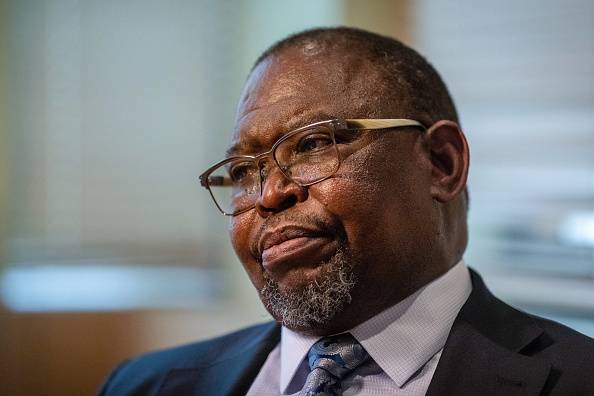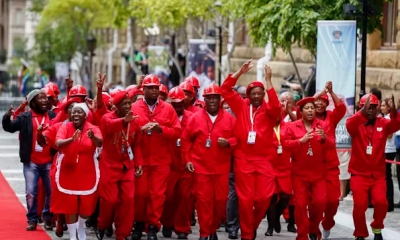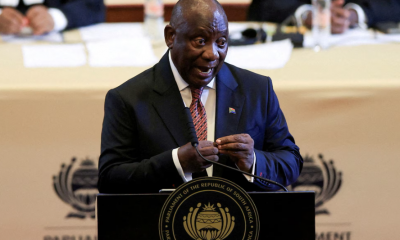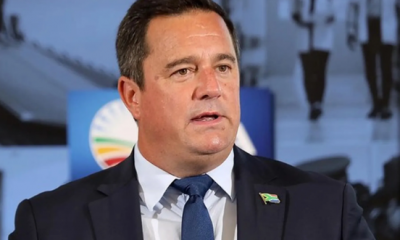411
Investors Brace for Crucial Budget Vote Amid Tensions in South Africa’s Coalition Government

South African investors are on edge as parliament prepares to vote on the country’s crucial budget legislation, amid deepening tensions between the African National Congress (ANC) and the Democratic Alliance (DA). The vote could have significant implications for South Africa’s economic policy, particularly regarding the controversial proposal to increase value-added tax (VAT).
Tensions Over VAT and Coalition Unity
On Tuesday, a panel of lawmakers backed a fiscal framework that forms the backbone of the national budget, including Finance Minister Enoch Godongwana’s proposal to hike VAT. This decision has become the focal point of a bitter divide between the ANC, South Africa’s largest party, and the DA, its main coalition partner. The DA has strongly opposed the VAT increase, while the ANC has indicated its intent to push the framework through parliament, even if it means proceeding without the DA’s support.
This split has caused concern among investors, with many fearing that a breakdown in the ruling alliance could undermine political stability. Barclays Plc economist Michael Kafe noted that should the ANC push the budget through without DA backing, the DA’s influence on economic policy would likely diminish, leading to a more market-uncertain environment.
The Impact on the South African Rand
As the political drama unfolds, the South African rand has already shown signs of vulnerability. On Wednesday morning, the currency traded 0.4% weaker at 18.54 per dollar as markets reacted to the heightened political uncertainty surrounding the budget vote. The rand’s decline reflects the growing investor unease about the outcome of the coalition government’s internal struggles.
Discussions Between Ramaphosa and Steenhuisen
In an effort to resolve the tensions, President Cyril Ramaphosa and DA leader John Steenhuisen held talks on Tuesday. Describing the meeting as “very good,” the DA remains cautious about entering into a budget deal with the ANC. A final offer for a budget agreement was reportedly submitted by the ANC to the DA shortly after their discussions, though no official response has been given by the DA at the time of writing.
Will the DA continue its participation in the coalition government? DA spokesman Willie Aucamp has confirmed that no decisions have been made yet, leaving investors in suspense as the vote looms.
The Path to a Vote
The budget vote is set for Wednesday afternoon, with a simple majority of the 400-seat parliament required for approval. While the ANC has secured support from smaller parties like ActionSA and the Inkatha Freedom Party, the absence of DA votes complicates matters. Without the DA’s support, the ANC will need to secure backing from smaller parties outside the coalition, like the ACDP or BOSA, to ensure the budget’s passage.
If the DA withdraws its support, the ANC will need to rely on ActionSA’s six votes and possibly other smaller coalition partners to get the necessary majority. However, the Economic Freedom Fighters (EFF), which opposes the DA, has also raised procedural concerns, potentially delaying the vote further.
What This Means for South Africa’s Economic Future
As investors look on, the upcoming budget vote will be a critical test for the future of South Africa’s fiscal policy. The government’s ability to resolve its internal differences, particularly over contentious issues like VAT, will determine its capacity to effectively implement its economic agenda.
Should the ANC succeed in passing the budget without DA support, it could mark the beginning of a shift in South Africa’s economic trajectory, with investors watching closely to see if the country’s political landscape will stabilize or fragment further.
{Source BusinessTech}
Follow Joburg ETC on Facebook, Twitter , TikTok and Instagram
For more News in Johannesburg, visit joburgetc.com



























